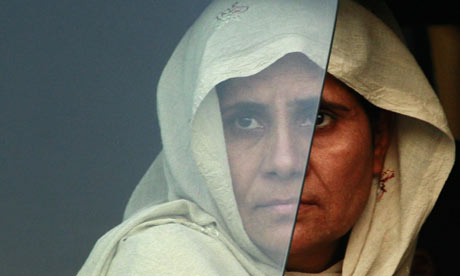US 'kept Pakistani army Swat murders secret'
WikiLeaks cables reveal hundreds of extra-judicial killings in Swat Valley and tribal belt since 2009

A deeply entrenched "culture of revenge" in the Pakistani army led to a spate of murders during fighting against the Taliban in Swat and the tribal belt, according to a secret US assessment last year.
But while US diplomats voiced private concerns about the killings – now admitted to number in the hundreds – they deemed it was better not to comment publicly in order to allow the Pakistani army to take action on its own.Last October, one year after the assessment was sent to Washington, US officials made moves to sanction several Pakistani military units accused of the killings. Pakistan's army chief, General Ashfaq Kayani, has also launched an investigation.
"A growing body of evidence is lending credence to allegations of human rights abuses by Pakistan security force" during fighting in the Swat valley and the tribal belt, the US ambassador, Anne Patterson, wrote in September 2009.
She said the most worrisome allegations concerned murders in which both regular army and paramilitary frontier corps soldiers – who are drawn from the Pashtun tribes – were implicated.Patterson said cultural traditions meant revenge killings were "key to maintaining a unit's honour", while commanding officers complained that Pakistan's weak judicial system was incapable of prosecuting detainees.
Commanders feared that if detainees were handed over to the courts and formally charged, they would be released, placing army and frontier corps troops at risk.
Pakistani police were also involved in the killings but were dealt with through a separate chain of command, she said.
An estimated 5,000 detainees – picked up during anti-Taliban operations in Malakand division, which includes Swat, and Bajaur and Mohmand tribal agencies, along the Afghan border – were at risk, she said.
Patterson proposed a number of measures to counter the problems, ranging from offering human rights training and promoting prison reform, to helping draft a new law that would create a "parallel administrative track" for charging and sentencing combat detainees. British officials could help draft the law, she suggested.
The cable contained no mention of the Leahy amendment, a 1997 US legal provision that obliges the government to cut funding to foreign military units found guilty of serious human rights violations.
"Post fully recognises that there is little that the [US government] can do to change the culture of revenge that underlies many of the extra-judicial killings," the ambassador wrote. "However, it is our view that if senior commanders are offered a viable alternate to deal with detained combatants … the prevalence of human rights abuses will diminish.
"Much of this is dependent on goodwill … that can easily erode if too much public criticism from USG [US government] officials over these incidents is forthcoming. For this reason, post advises that we avoid comment … and that efforts remain focused on dialogue and the assistance strategy."
After shocking footage emerged earlier this year that purported to show Pakistani soldiers murdering six men, it emerged that the US government planned to cut aid to at least six Pakistani military units.
Senator Patrick Leahy, author of the Leahy amendment, told a reporter: "I am not going to close my eyes to it because of our national interests in Pakistan."Sources told the Guardian that the targeted units included elements of the 12 Punjab infantry regiment and the paramilitary Frontier Corps. By conservative estimates at least 300 people have been murdered by security forces in Swat since 2009. But at a meeting in Washington in September, Admiral Mike Mullen, the chairman of the US joint chiefs of staff, told human right activists the real number was much higher.
